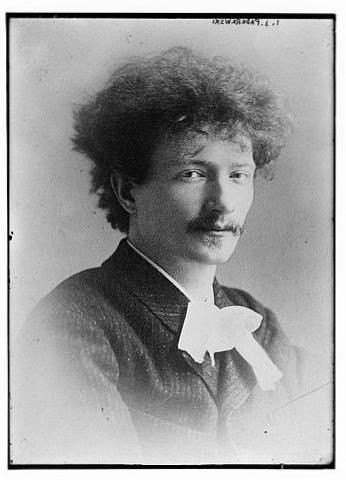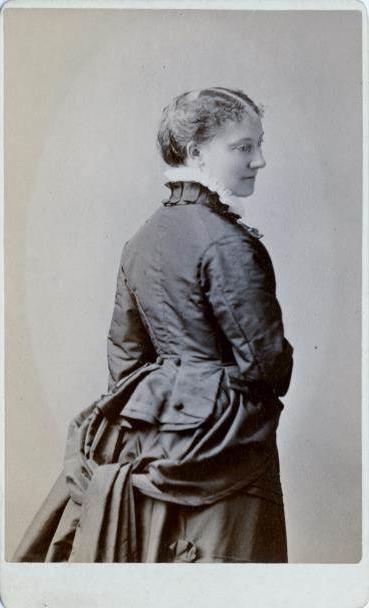By Anna J. Clutterbuck Cook, Reader Services
Today, we return to the line-a-day diary of Margaret Russell. If you have missed previous installments of the diary you can find January (along with a brief introduction to the series) and February in the blog archive. In contrast to her busy travel schedule in February, Margaret Russell remained in Boston throughout the month of March. The weather continued to be quiet wintery, with Margaret often noting snow and “blowing” wind. Her days were spent socializing with friends, charity work, and cultural activities such as visits to the museum and attendance at lectures.
One of the things that can be most jarring or haunting about reading a line-a-day diary is the way in which meaningful events are sandwiched within otherwise mundane entries. For example, on March 5th Margaret writes that “Henry Curtis is dead” between noting where she ate lunch and how “fine” the Wagner concert she attended that day was.

And even though Margaret spent the month of March in Boston, she was not wanting for high-profile performers and speakers; among the lectures she attended was a speech by former President William Howard Taft and among the concerts she attended were two performances by pianist Ignacy Jan Paderewski (1860-1941) who three years later would become prime minister of Poland.
* * *
March 1916
1 March.* Wednesday – Mrs. Ward’s lecture. Lunched at Club. Art Museum talk. Home to rest. Second lecture of coal by Prof. Jeffrey with Miss A–.
2 March. Thursday. M.G.H. Meeting. Walked down to see Miss Cannon. First [illegible words] England – Individualism. Skating Carnival with Parkman.
3 March. Friday. To Mrs. Dalton’s on C.D. business. Beautiful concert. To hear Pres. Taft speak at Red Cross in the evening.
4 March. Saturday – Mrs. Tyson’s reading. Paid calls & went to musical at Miss Mason’s.
5. March. Sunday – Walked to Cathedral with Miss A. Lunched at HGC’s. Henry Curtis is dead. Fine Wagner concert. Family to dine.
6 March. Monday. Hospital meeting. [illegible word]. Went to Mt. Auburn with CPC for funeral. Botany lecture.
7 March. Tuesday – snowing again. Lunched at Mrs. Mattey’s. Went to hear Mrs. Dupriez on Belgium. Very painful.
8 March. Wednesday – Church. Chilton. Had lunch at Miss Lamb’s. Art museum. Snowing hard.
9 March. Thursday – Chilton meeting. Am back as Gov. Lunch club at Mrs. Hunnewell’s. Power lecture. Dined at Mrs. Crafts.
10 March. Friday – Snowing again. Mrs. W. Charles came to play. Concert with Paderewski. Had dinner of 22 for Ellen at Chilton. Dancing class afterwards.

11. March. Saturday. Mrs. Tyson’s reading. Mama sick so stayed at home with Mama. Mrs. Sears to concert as Paderewski played.
12 March. Sunday. Church. Lunched at HGC’s Family to dine.
13 March. Monday. Errands – [illegible word] – lunched at Marian’s. Botany lesson. Thawing.
14 March. Tuesday. Ear & Eye visit in the A.M. Tuesday Club at M. Ware’s. Red Cross discussion. Had ten people to dine. Seemed pleasant.
15 March. Wednesday. Ward lecture. Lunched at Chilton. Art museum class – Snowing hard & blowing.
16 March. Thursday. Walked down town errands & church. After lunch went out to see Aunt E. Last [illegible word] lecture.
17 March. Friday – Fine day. Walked down town. Mrs. Chandler came to play. Lunch at Mrs. Jack Peabody’s. Drove out to Riverside, road good.
18 March. Saturday – 4 [illegible word] this A.M. – Mrs. Tyson’s. After lunch went down to Swampscott. Badly drifted in places but we did not suffer.
19 March. Sunday – Church to see Parkmans. Lunched at H.G.C’s. Paid calls. Found Mary R. who looks very ill. Family to dine.
20 March. Monday – Mrs. Norcross from [illegible word] Com. came by to see me & I liked her very much. Botany lesson at Cambridge. Was lecture at Mrs. Sears.
21 March. Tuesday – Eye & Ear through the A.M. Dined at the H. Burrs. Streets in awful condition.
22 March. Snowing hard & blowing again. Went out to Fogg museum where Ed. Forbes showed us the [illegible word] pictures.
23 March. Thursday – Walked for errands. Mrs. Charles to play. Lunch club at Jessie’s. Went out to see Aunt Emma.
24 March. Friday – Down town to buy typewriter & to church. Miss Ruelker to lunch & to go to concert. Went to Cambridge to see [illegible word].
25 March. Saturday – Mrs. Tyson’s reading.
26 March. Sunday Church. Lunched at Horatio’s. Family to dine. Went to see Mary Russell but there had been a sudden change.
27 March. Monday – went to walk for errands. Lunch at Marian’s. Visited the Eye & Ear.
28 March. Tuesday – Colonial Dames annual meeting but to Cambridge to lunch at Edith’s. Back to hear Miss Holinau speak at the Allens.
29 March. Wednesday – Interesting lecture from Pres. Taft. Lunched at Mrs. Allen’s with Miss Holinau. F. O. & Mrs. Hay & F. D. Cambridge concert in evening.
30 March. Thursday – Mrs. Charles to play. Went out to see Aunt Emma & there to dine. Mary Russell has had [illegible word].
31 March. Friday – Service at cathedral. Lunched at Chilton’s. Had Miss Reulker & Mrs. Bell, Mrs. Sears E & J. All went to concert. Dined at Georgie’s.
* * *
If you are interested in viewing the diary in person in our library or have other questions about the collection, please visit the library or contact a member of the library staff for further assistance.
*Please note that the diary transcription is a rough-and-ready version, not an authoritative transcript. Researchers wishing to use the diary in the course of their own work should verify the version found here with the manuscript original.


























